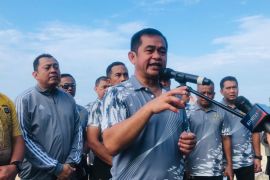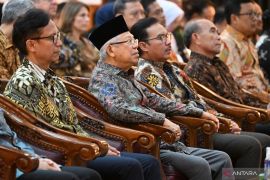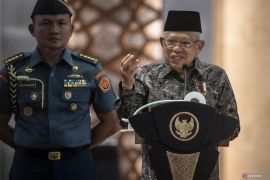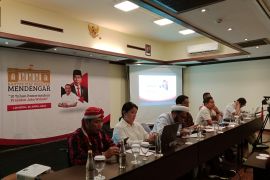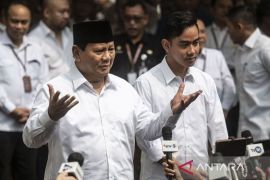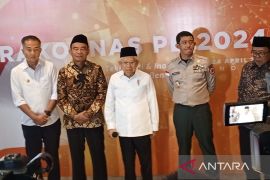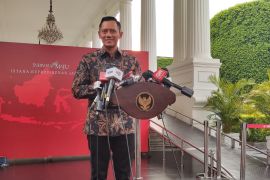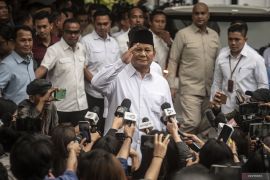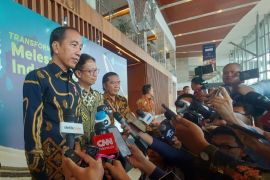"I have stressed that I will not pardon drug convicts who have been given the capital punishment," Jokowi said.Jakarta (ANTARA News) - President Joko "Jokowi" Widodo will not pardon narcotics convicts, maintaining a firm stance with regard to efforts towards fighting drug offenses, which he views as dangerous and serious.
"I have stressed that I will not pardon drug convicts who have been given the capital punishment," the president said during a coordination meeting with the National Narcotics Agency (BNN) here on Wednesday.
He added, "Efforts towards eradicating narcotics cases should be stepped up and not ignored because we are now in an emergency situation. All related parties should cooperate well."
Jokowi revealed that at present, an average of 50 deaths occur every day due to narcotics abuse, which means some 18,000 victims die due to drug addiction in one year.
"I explained this to other heads of states as well, after the recent execution of drug convicts sentenced to death. I explained this to the presidents and prime ministers who contacted me asking for clemency (for convicts from their respective countries). They should know that as many as 50 people die every day due to addiction to drugs. This does not include the 4.2 to 4.5 million others who are undergoing rehabilitation," Jokowi stated.
In addition, there are 1.2 million addicts who cannot be rehabilitated due to various reasons.
According to the president, the saddening figures necessitate the involvement of all people in the country to fight the crime.
"About 70 percent of inmates were involved in narcotics offenses. We have to adopt a firm and serious attitude to tackle this. Tolerance is no longer acceptable," he emphasized.
Jokowi also admitted to have been under pressure from various sides in the run-up to the execution of the narcotic death convicts.
"When the executions were to be carried out, there were pressures coming in from all sides. I handled them easily. There are 64 narcotic convicts on death row," he pointed out.
In keeping with these efforts, the president has asked governors, district heads and mayors to work in tandem to fight narcotics cases and to eradicate the crime by adopting a no-tolerance policy.
"I have also given orders to the BNN with regard to rehabilitation. Last year, there were 18,000 deaths. If the cases reach 18,000 every year, when will it end? So this year, the BNN should prepare faster ways of rehabilitating addicts. We should think about it," Jokowi noted.
Furthermore, Coordinating Minister for Political, Legal and Security Affairs Tedjo Edhy Purdijatno recently said that the rejection of clemency petitions of several drug convicts on death row was aimed at deterring narcotics smugglers.
"The president will continue to reject clemency petitions from drugs convicts. This is to create a deterrent effect among drug dealers," Purdijatno stated.
According to the minister, the government will speed up the legal processes involving other suspects, including those related to defendants, to ensure their legal status.
Purdijatno added that efforts are being undertaken to fight the rampant spread of drug abuse in Indonesia.
"So we will speed up the legal processes. With strict laws in place, drug dealers will not enter Indonesia," he affirmed.
Moreover, the government will rehabilitate drug users as another approach to handling the narcotics problem.
Purdijatno assured that the integrity of law enforcers will be enhanced to overcome the drugs issue.(*)
Editor: Heru Purwanto
Copyright © ANTARA 2015

